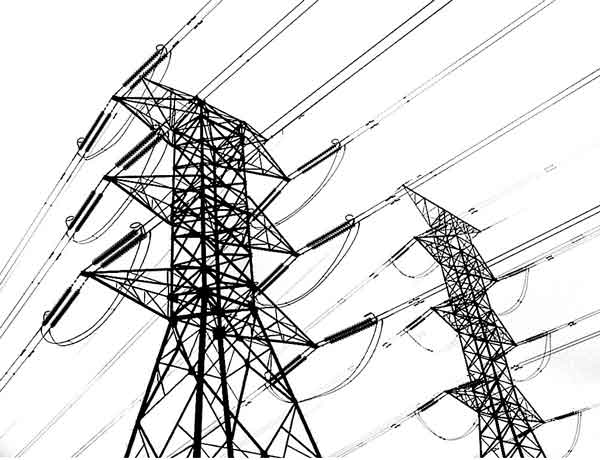Gulf Power 40% One-Time Bill Decrease approved by the Florida Public Service Commission delivers a May fuel credit and COVID-19 relief, cutting residential and business costs across rate classes while supporting budgeting and energy savings.
Key Points
PSC-approved fuel credit cutting May electric bills about 40% for homes and 40-55% for businesses as COVID-19 relief.
✅ One-time May fuel credit on customer bills
✅ Residential cut ~40%; business savings 40-55% by rate class
✅ Online tools show daily usage and projected bill
Gulf Power announced that the Florida Public Service Commission unanimously approved its request to issue a one-time decrease of approximately 40% for the typical residential customer bill beginning May 1, similar to recent Georgia Power bill reductions seen elsewhere. Business customers will also see a significant one-time decrease of approximately 40-55% in May, depending on usage and rate class.
"We are pleased that the Florida Public Service Commission has approved our request to deliver this savings to our customers when they need it most. We felt that this was the right thing to do, especially during times like these," said Gulf Power President Marlene Santos. "Our customers and communities now more than ever count on the reliable and affordable energy we deliver, and we are pleased that May bills will reflect this additional, significant savings for our customers."
In Florida, fuel savings are typically refunded to customers over the remainder of the year to provide level, predictable bills. However, given the emergent and significant financial challenges facing many customers due to COVID-19, Gulf Power instead sought approval to give customers the total annual savings in their May bill, similar to a lump-sum electricity credit approach, which will be reflected as a line-item fuel credit on their May statement.
New tools to help save energy and money
Many customers are working from home and, in general, staying at home more. More time and extra people in the home will likely increase power usage, which could lead to higher monthly bills.
Gulf Power recently added new tools to our customers' online account portal to help them better understand and manage their energy usage, including their monthly projected bill amount and a breakdown of daily energy usage, which is available for most residential customers*. Customers can now see their previous day's energy usage using their online account portal to help them more easily understand how their previous day's activities impacted energy usage, allowing them to quickly make adjustments to keep bills low. The new projected bill feature is a valuable tool to assist customers in budgeting for their next month's energy bill.
Additional energy-saving tips that can be implemented with no additional cost or equipment are also available. As always, Gulf Power's free online Energy Checkup tool will provide customers with a customized report based on their home's actual energy use.
Helping customers pay their bills
Gulf Power has a long history of working with its customers during difficult times, including periods of pandemic-related energy insecurity, and will continue to do so. Gulf Power encourages customers that are having difficulty paying their energy bill to visit GulfPower.com/help to view available resources that can provide assistance to qualifying customers.
Customers are encouraged to pay their electric bill balance each month to avoid building up a large balance, which they will continue to bear responsibility for. Gulf Power will work with the customer's personal situation and assist with a solution, similar to how utilities in Texas have waived fees during this period, to help customers fulfill their personal responsibility for their Gulf Power balance.
Those who can afford or want to help others who may need assistance with their energy bill can make a donation to Project SHARE in your online customer portal. Project SHARE donations are added to a customer's monthly bill and all contributions are distributed to local offices of The Salvation Army. Customers in need of utility bill assistance can apply for Project SHARE assistance at The Salvation Army office in their county.
Supporting our communities
The Gulf Power Foundation gave $500,000 to United Way organizations across Northwest Florida to assist those most vulnerable during this time, which has helped support food, housing and other essential needs throughout the region. In addition, the Foundation recently made a $10,000 donation to Feeding the Gulf Coast and launched an employee donation campaign to provide food for our neighbors in need, while Entergy emergency relief fund offers a similar example of industry support. In total, Gulf Power and its fellow NextEra Energy companies and employees have so far committed more than $4 million in COVID-19 emergency assistance funds that will be distributed directly to those in need and to partner organizations working on the frontlines of the crisis to provide critical support to the most vulnerable members of the community.
Lower fuel costs are enabling Gulf Power to issue a one-time decrease of approximately 40% for the typical residential customer bill in May, even as FPL faces a hurricane surcharge controversy in the state
- a significant savings amid the ongoing COVID-19 pandemic
Gulf Power will deliver savings to customers through a one-time bill decrease, rather than the standard practice of spreading out savings over the remainder of the year, even as FPL proposes multi-year rate hikes elsewhere
Related News












